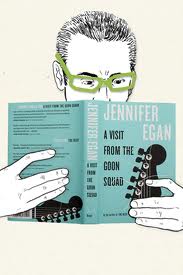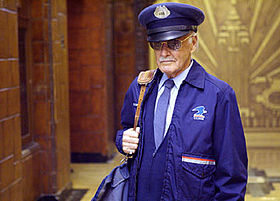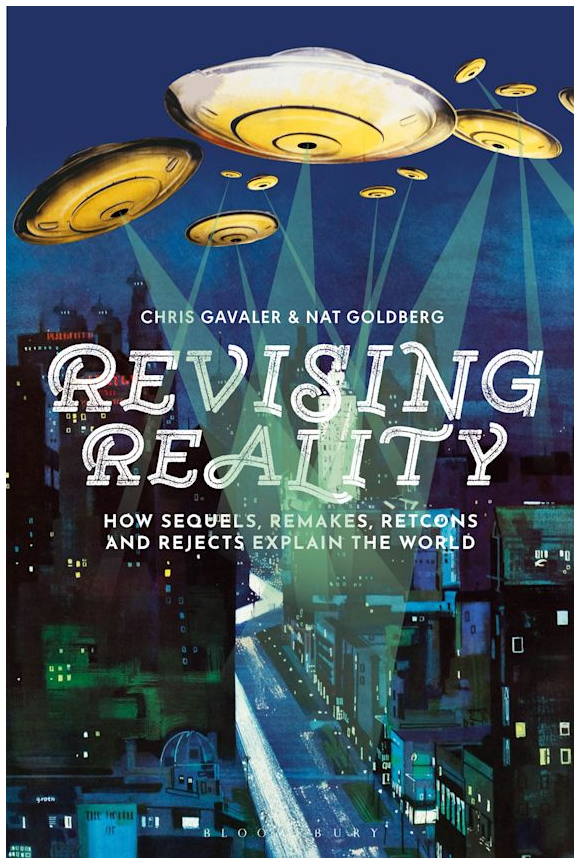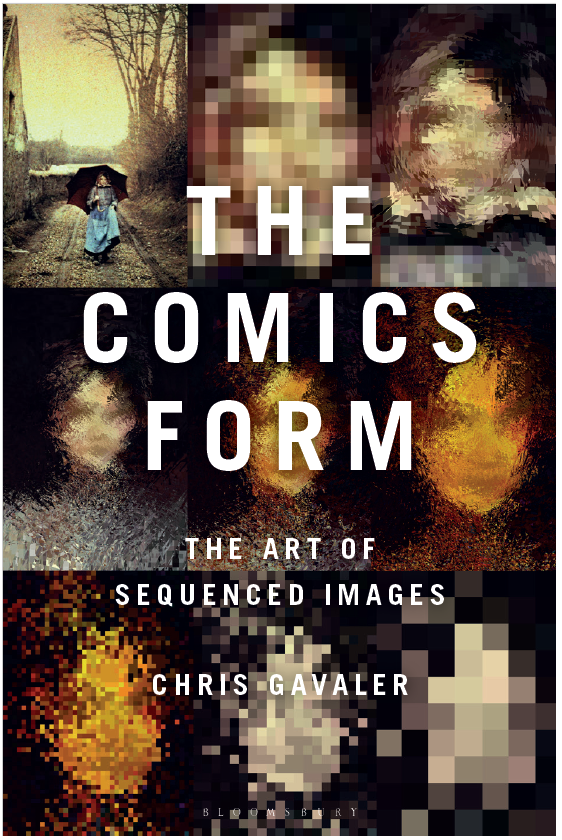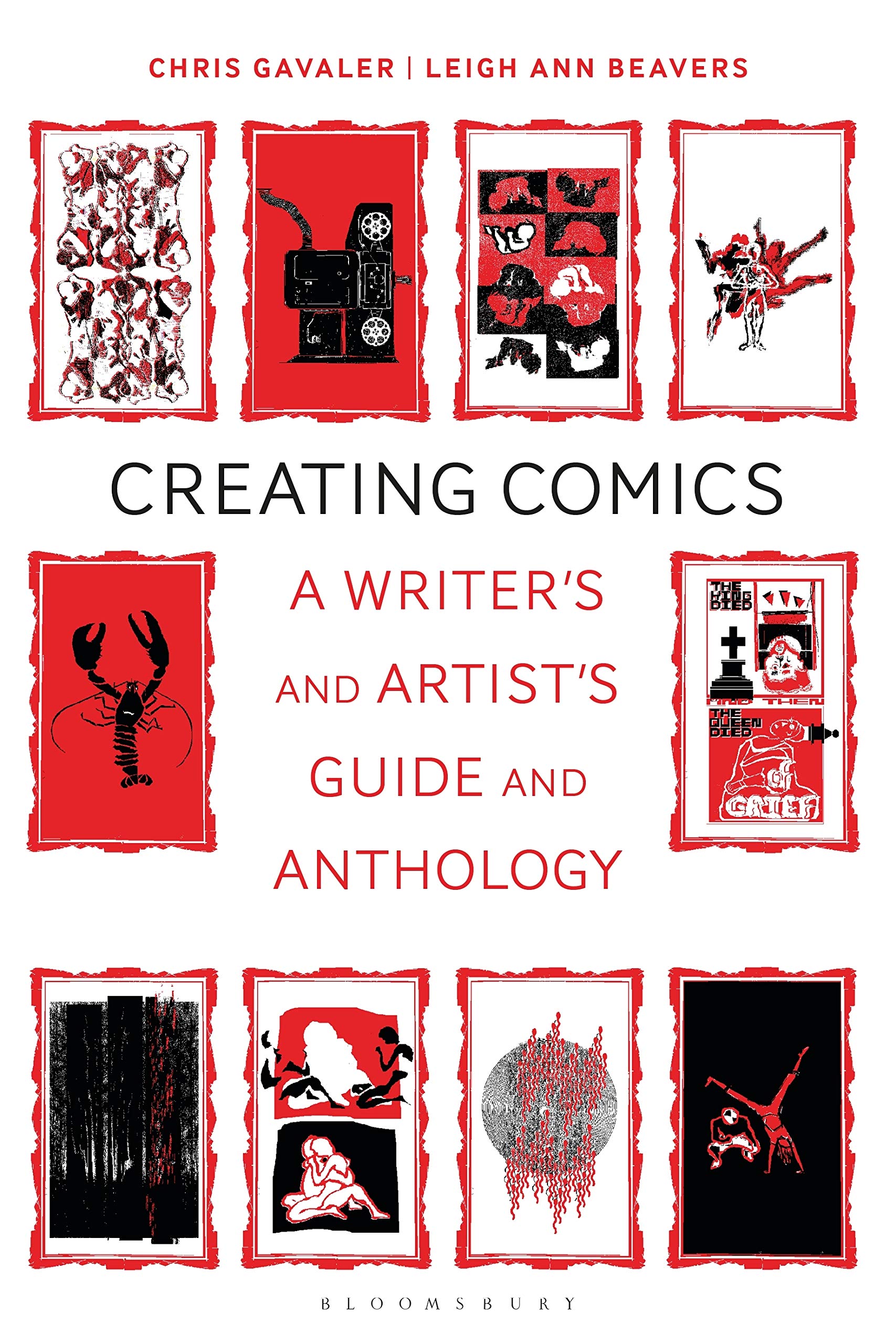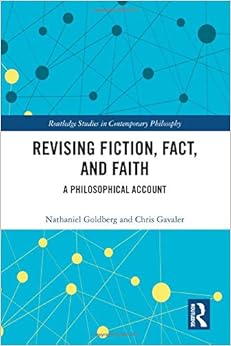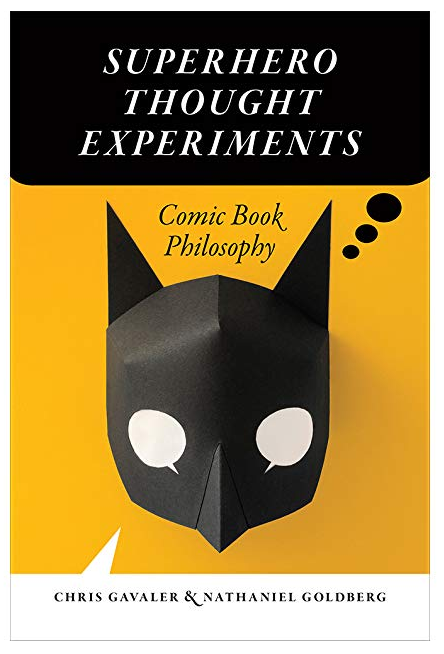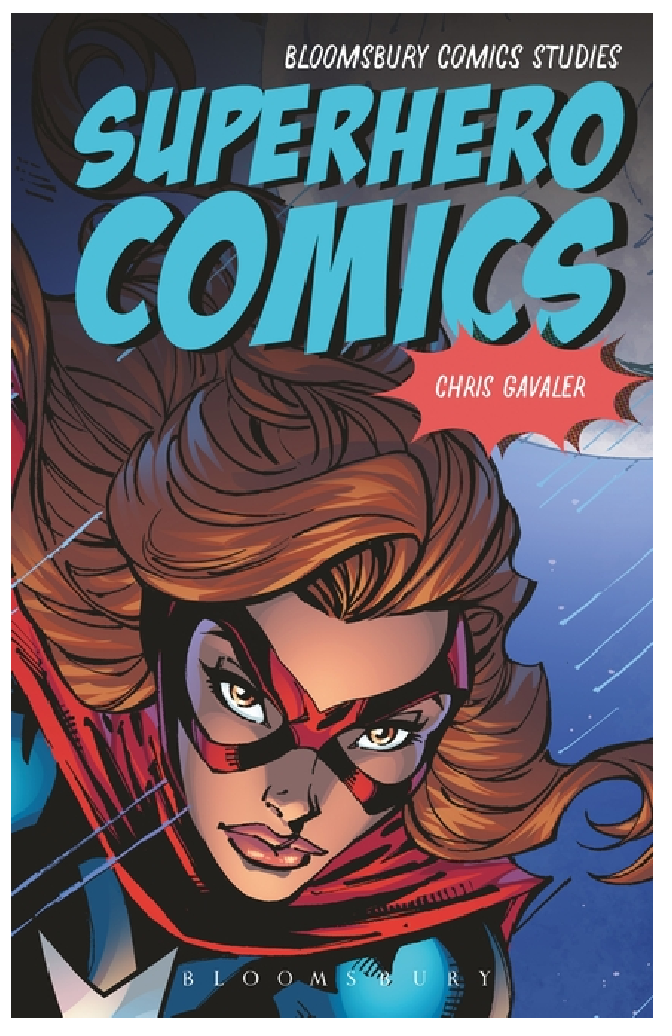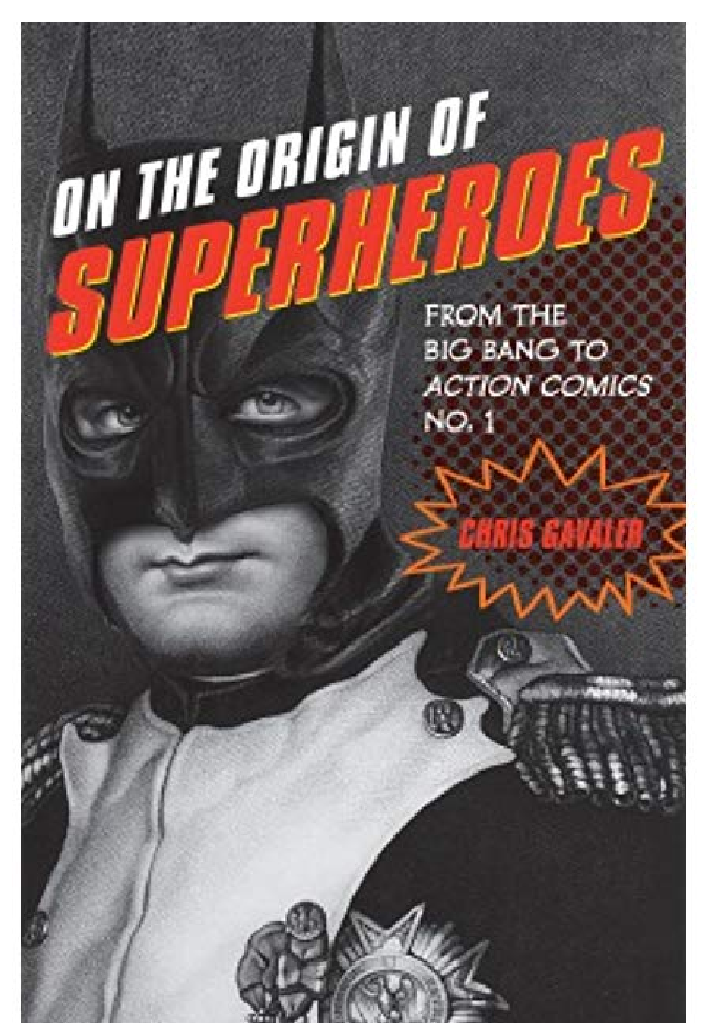Monthly Archives: April 2013
29/04/13 Soon YOU Will Be Invincible
About five years ago, a group of honors students were trolling campus for a professor willing to create and teach a course on superheroes. They found me. The syllabus I submitted to C&D for approval included a predictable roster of comic books, interspersed with a few influential pulp novels and even a smattering of Nietzsche and Shaw. But then a friend handed me a novel I’d never heard of, a then recent hardback about an evil genius and the team of superheroes he fights. Standard comic book fodder, but the blurbs on the back assured me this was a literary novel.
And I thought: Really?
This is of course well before my superhero obsession had achieved its current proportions, but I had serious doubts. Sure, in rare cases, a comic book, say Alan Moore’s The Watchmen, could scale the pop culture ladder to achieve recognition as a work of serious literature. But this Austin Grossman guy, he was going the other direction. Soon I Will Be Invincible was a novel descending into comic book clichés. Yes, Michael Chabon had won the Pulitzer for The Adventures of Kavalier and Clay, but that wasn’t a novel about superheroes—that was a novel about superhero creators. Totally different.
And then I started reading. I didn’t make it through the first chapter before going online and ordering my own copy so I wouldn’t mark up my friend’s with underlines and scribbles. Always a sure sign I’m in love. This evil genius, Dr. Impossible, he was hilariously witty and improbably poignant. Where Alan Moore applies psychological realism to darken comic book stereotypes, Grossman achieved a realism that didn’t destroy the beloved formulas. His supervillain still MWAHAHA-ed, doomed to lose every plan for world domination, but under that absurd surface was a frighteningly familiar human being. Where Moore devastates superheroes, Grossman heightens the character types by constructing vast inner psychologies.
So I revised my syllabus and made those honors students read it. And then I made my book club read it. And then, since my kids weren’t reading entirely on their own yet, I read it to them. (My son’s twelve now, and when he heard Austin Grossman was coming to my campus, he found my scribbled-up copy and read it to himself again.) My daughter had already read most of Harry Potter on her own a few times, but she liked the ritual of a parent droning from a book over the breakfast table and after dinner on a couch. Soon I Will Be Invincible may be the last novel I read to them both. When I tried to start another, she very politely asked: “Dad, can we do something not about superheroes?”
But she loved Grossman too. How could the children of two professors not fall in love with a geeky genius in an endless battle against the stuck-up superhero bullies who persecuted him in middle school? But it was Grossman’s second narrator, an amnesic cyborg, who bulled me over. Despite (or perhaps because of) her fantastical absurdities—she shoots rubber bullets and a grappling hook from her forearms—her character took on emotional resonances I didn’t notice at first, meanings smuggled in under all the fun.
So when I got to the paragraph where she mourns the loss of her old self, the kid she can’t even remember ever being, I couldn’t read it. Literally. I choked up. Repeatedly. My kids thought I was having some kind of seizure. I was looking at my almost-pubescent daughter, a girl who had maybe ten minutes left in her childhood, and suddenly the metaphor of an amnesic cyborg was the most profound truth I’d ever read. Or not read. I eventually had to give up and hand the book to her to read aloud to her brother.
And now Austin Grossman has a new novel. How will I cope?
He’s again returned to my childhood, not to comic books this time, but video games. I can recall reading a green computer screen over a high school friend’s shoulder as he typed responses to text-only prompts. The game Zork began with the words: “You are standing in an open field west of a white house, with a boarded front door.”
That nameless main character, “You,” is also the title of Grossman’s new novel. Instead of plumbing the secret depths of superheroes, YOU offers a subterranean view of the computer gaming industry, a multiverse Grossman knows particularly well. He started writing games twenty years ago—because what else would you do with a B.A. from Harvard?—stopping to study Victorian literature at Berkley before launching his literary career while still continuing to expand his work in video.
My family has more Austin Grossman on our shelves than I had realized. He co-wrote Epic Mickey, a game I’ve watched my son slash through with our Wii remote. His credits are long, and even a non-gamer like me recognizes titles like Tomb Raider and Jurassic Park. Though I admit when I saw the headline “Dishonored Writer’s New Novel Shows a Video Game Generation Being Born,” I thought Grossman must have done something really, you know, dishonorable. (Dishonored actually won a range of awards last year and is considered the best action-adventure of 2012. )
I predict equally honorable accolades for YOU. The novel just launched, and Washington and Lee University will be hosting a reading on May 14th. Should you happen to be in attendance and feel a sudden, inexplicable wave of déjà vu, it might because Austin’s identical twin, Lev, stood on the same stage last fall to read from his own upcoming novel, a sequel to The Magician King. There’s clearly an annoying surplus of talent in the Grossman gene pool.
In my family, all the computer DNA went to my two brothers, stepbrothers, so no nature-nurture mystery there. Grossman’s characters enrolled in their high school’s first offering of computer math. So did I—before fleeing the next day. My brothers basically taught the class. I’d still rather watch Space Invaders over someone’s shoulder than play it myself. So all the more amazing to me that Grossman can render the spectacle of 80s and 90s games so thrillingly. Graphically you might just be a plus sign battling hordes of ampersands in a forest of Vs, but his prose imbues your plight with improbable depth, both three-dimensional and psychological.
My brothers went on to careers as programmers, and one is, in fact, a game designer in a universe that bears an uncanny resemblance to YOU. But saying the novel is about video games is like saying The Old Man and the Sea is about fishing. It tells you a great deal and nothing at all.
I will say that YOU is a fantastic novel, but not fantastical. Sure, the game’s archetypal adventurers chat with the narrator on a regular basis, but you can write those off as dreams and daydreams. And, yes, that ur-bug infecting the game code has an almost supernatural vibe, but Grossman never quite exits realism. Or rather, fantasy and reality become flip sides of a single coin. While Invincible explores the disturbing borders where real and unreal meet (the seams in cyborg skin graphs, for example), YOU overlaps the two worlds–literally, the game maps are overlays of Central Park, Disneyland, Scotland.
Ultimately, the difference between here and there, you and your role-playing self, tumble into a shared real/unreal universe, the coin Grossman keeps spinning for almost four hundred dizzying pages. When I set the book down, I had to recalibrate my senses, shake-off the metafictional jet-lag, before handing YOU to my son. He’s a video game junky. He’d dive through the screen of his laptop if he could. I’m glad he can’t, but Grossman provides the next best thrill.
Tags: Austin Grossman, Lev Grossman, Soon I Will Be Invincible, YOU, Zork
- Leave a comment
- Posted under Uncategorized
22/04/13 Super-Blogger Clark Kent Saves the World One Sentence at a Time
I can restart the Israeli-Palestinian peace process in three words.
But first a lesson in grammar.
Passive voice. Ever heard of it?
Super-grammarian Geoffrey Pullum has. Daily Planet editor Perry White has too. But White, according to Pullum, has no idea what it is.
In J. Michael Straczynski and Shane Davis’ Superman: Earth One, Mr. White explains to cub reporter Clark Kent: “Active sentence structure versus passive structure. A good reporter always goes for the former, never the latter. It’s ‘A dog was killed last night,’ not ‘Last night, a dog was killed.’”
And then Pullum swoops in through a window: “It looks as if the editor of The Daily Planet thinks that it is passive sentence structure to use any adjunct constituent set off by commas. So he would condemn sentences like Michael Corleone’s You’re out, Tom, or Today, I settle all family business, for being passive!”
In his Chronicle of Higher Education article “Passive Writing at the ‘Daily Planet,’” Pullum bemoans the sorry state of grammatical knowledge among not just fictional newspaper editors. Your “freshman-comp TA” and writing gurus Strunk and White get it wrong too. Pullum considers it a serious educational issue.
I teach first-year composition, but my concern isn’t educational. It’s moral.
Passive voice is evil.
If you accept Stan Lee’s superhero prime directive, “With great power comes great responsibility,” then passive voice is a supervillain’s weapon of choice.
Which might explain why politicians use it so often. The Fat Man and Little Boy of literary examples were both launched by the Nixon administration. When press secretary Ron Ziegler was discussing Watergate, and when Secretary of State Henry Kissinger was discussing Vietnam, both deployed the same phrase:
“Mistakes were made.”
Who made the mistakes? Impossible to say. The sentence is missing its subject, the agent, the actor of the action. And there lies the villainy. Passive voice erases responsibility. It’s how bad guys make their escape.
Look at Mysterio. He routinely eludes Spider-Man by dropping smoke bombs and ducking away in the confusion. If you rewrite the sentence
“Mysterio dropped a smoke bomb,”
as
“A smoke bomb was dropped,”
then Mysterio (subject and villain) vanishes twice. He ducks away in the syntactical confusion. Passive voice writes him right out of the sentence.
Perry’s example, “A dog was killed,” actually IS passive voice (whether it happened last night or not), because the sentence masks the identity of the dog-killer. Did Mysterio kill the dog? Did Richard Nixon? Nobody knows.
Which is why reporters like Clark Kent sometimes use passive voice. The police, like the readers of the sentence, are still searching for the killer.
But what if the information is known and the writer obscures it?
That’s where things get ugly.
Reaching past my shelf of comic books, I have The Palestine-Israeli Conflict in hand. Instead of dual-statehood, Dan Cohn-Sherbok and Dawoud El-Alami settle for dual-authorship. And that’s about all they agree on. Each pens his own history. The book is a journey down the same river twice, but in very different boats.
When describing events of 1948, Dawoud El-Alami writes: “Jewish terrorist organizations . . . carried out a massacre of men, women and children in the village of Dier Yassin.” That’s active voice. The subject of the sentence carries out the massacre. In contrast, Dan Cohn-Sherbok describes the same incident with the phrase: “the policy of self-restraint was abandoned.” That’s passive. Who abandoned self-restraint? His syntax doesn’t want to tell.
Cohn-Sherbok goes on to describe a similar incident from 1982: “More than three hundred refuges were massacred.” Passive again. And Dawoud El-Alami, to no surprise, employs active voice again: “The militia massacred between seven hundred and one thousand people (some reports say two thousand).”
Technically, the two pairs of sentences don’t contradict (even mathematically, since two thousand is “more than” three hundred). But Cohn-Sherbok employs passive voice at its immoral worse. His syntax erases responsibility.
Now I’m not suggesting that the “Palestinian Perspective” half of The Palestine-Israeli Conflict is any more accurate than the “Jewish Perspective.” Dawoud El-Alami has his own array of rhetorical maneuvers for ducking blame.
If you’re wondering about my political biases, I find myself agonizingly sympathetic to both sides. The most guilty party is England, who, desperate to fight Nazi Germany, promised the same homeland to two different aspiring nations. The results were horrifically predictable.
But if you don’t think England is responsible, then this is a job for passive voice:
“The Jews and the Palestinians were promised the same land.”
Promised by whom? By Mysterio’s trademark cloud of syntactical smoke.
But at least Clark Kent is too fast for him. Clark recently escaped the grammatical misinformation of Perry White to strike out on his own as a blogger. It was big news. Last November, after a discussion of the Israel-Hamas cease-fire, NPR’s Talk of the Nation host Neal Conan explained:
“After more than 70 years as a mild-mannered reporter, Superman quit his day job at The Daily Planet. A fed-up Clark Kent delivered a diatribe in front of the entire newsroom on his way out the door. ‘I was taught to believe you could use words to change the course of rivers,’ he said, ‘that even the darkest secrets would fall under the harsh light of the sun.’”
Are you listening, Dan and Dawoud? Your words are changing the course of rivers. Take responsibility for your subjects, even their darkest secrets.
That’s the first step in this English professor’s plan for world peace:
Ban passive voice.
[And for the super-grammarians out there, I should point out that both “The dog was killed” and “The dog was killed by Richard Nixon” are examples of passive voice, even though the second sentence apprehends the killer. Only the first, the agentless subgroup of passive voice, is evil. The second is just criminally clumsy.]
Tags: Clark Kent, Dan Cohn-Sherbok, Dawoud El-Alami, Geoffrey Pullum, Henry Kissinger, J. Michael Straczynski, mistakes were made, Mysterio, passive voice, Perry White, Ron Ziegler
- Leave a comment
- Posted under Uncategorized
08/04/13 Superpowered Sex Offender
“I have the power to drop into the Fold,” Arno Strine tells us on the first page of his autobiography. All he has to do is push “my glasses up on my nose Clark Kentishly,” and “I am alive and ambulatory and thinking and looking, while the rest of the world is stopped.”
It’s an unusual superpower, one possibly due to his being born with a knot in his umbilical cord which required him “to form a loop and then pass right through it.” Also his job transcribing taped dictation, “starting and stopping so many thousands and thousands of modest human sentences-in-progress with my foot-pedal,” may have honed his time-pausing powers.
Being “a thirty-five year old male temp who has achieved nothing in his life” is a pretty lackluster existence for one of the most powerful human beings on the planet. But like so many who maintain alter egos, Arno wants to keep his superpowered life “a secret, and as a result it has swallowed up large chunks of my personality.” What superhero can’t relate?
Aside from a couple more intentionally bogus origin stories, Arno does purport to being “guided by a will greater than my own” and even theorizes “the reason I have been chose over any other contemporary human to receive and develop this chronanistic ability (if there is indeed some supernatural temp agency doing the choosing) is maybe that I can be trusted with it.”
And for the most part, Arno really is a trustworthy guy. “Fear” is his “least favorite emotion,” and he wants “to be responsible for creating as little of it as possible.” He doesn’t even like using his powers against his own would-be muggers, and as penance he spends an afternoon “performing acts of lite altruism,” including “collecting concealed handguns off anyone who looked under thirty” and disposing of them (forty-four in all) in newly poured cement.
“I have never deliberately caused anyone anguish,” Arno reports. He literally wouldn’t hurt a “grub” or want to cause “trouble for any living thing.”Or, for that matter, a non-living thing such as the bookstore paperback he purchases because he wrote in it while in the Fold. Other would-be Fold-users might enrich themselves as spies and thieves, but he can’t bring himself to steal a dollar from a cash register. He sincerely wishes to do no harm to anyone. “The last thing in the world I want,” he tells us, “is to be seen as a threat.”
So what’s this swell guy’s one and only downside?
He’s a rapist.
Or, to be fair, he’s something that doesn’t have a name. Because what do you call a man who while in the Fold, undresses women, gropes them, and, in at least one case, ejaculates on their unaware bodies?
It was not, by the way, a supernatural temp agency who bestowed Arno’s “time-perversion” powers. It was Nicholson Baker. Arno doesn’t live in a comic book or, more plausibly, a Penthouse comic strip. He’s the narrator of Baker’s 1994 novel, The Fermata. (That’s just two years before the collapsing Marvel Comics finally filed for bankruptcy protection after farming its pantheon to temps, and so a fitting backdrop for such a morally bankrupt novel.)
Which is not to say The Fermata (another term for the Fold) is a bad novel. Baker is an excellent writer (my wife teaches his Lovecraft homage to gothic potatoes), and when not falling victim to the contrivances of their pornographic plots, Arno and his fellow characters are rendered with stylistic brilliance.
But, unlike Oscar Wilde, I do believe art can also be judged in moral terms. All art is propaganda, and The Fermata advocates for a way of thinking that gets a lot of women raped.
University of Rochester Professor Steven Landsburg recently blogged in response to the rape conviction of two high school football players in Steubenville, Ohio: “As long as I’m safely unconscious and therefore shielded from the costs of an assault, why shouldn’t the rest of the world (or more specifically my attackers) be allowed to reap the benefits?” Landsburg notes that the “Steubenville rape victim, according to all the accounts I’ve read, was not even aware that she’d been sexually assaulted until she learned about it from the Internet some days later.” Since there was “no direct physical harm – no injury, no pregnancy, no disease transmission,” Landsburg asks, “Ought the law discourage such acts of rape? Should they be illegal?”
Students of Rochester have answered with a resounding YES! They are protesting outside Professor Landsburg’s classroom and petitioning the administration to censure and/or fire him.
According to national statistics, at least 1 in 4 women are sexually assaulted while at college. My school’s rate probably isn’t much higher. Though when the women in questions are the ones sitting in my literature classes, the statistic isn’t abstract.
Their assaulters sit in front of me too. They seem like good guys. In fact, they are good guys—friendly, bright, engaged, funny, sincere, all-around well-intentioned young gentlemen who on occasion will rape their fellow classmates.
By rape I mean, for the most part, render unconscious and sexually penetrate. A behavior which, amazingly, horrifically, unfathomably, they do not register as morally repulsive. Somehow many of these young men do not realize that sex with an unconscious body is not sex. They do not understand that sex without consent is rape. Or, more accurately, they do not wish to understand.
Which brings us back to Arno.
Basically the Fold is a super-roofie. One he’s employed on “hundreds” of women. Arno’s ex-girlfriend likened his behavior (or would-be behavior, since Rhody thought he was only divulging a fantasy—which was reason enough for her to dump him) to necrophilia. She found it, and so him, “repellent,” deserving to be “criminally prosecuted.” And Arno knows it’s true. He “would condemn in the strongest terms anyone else who did what I have done.” In fact, “when I try to imagine defending my actions verbally I find that they are indefensible, and I don’t want to know that.”
And yet he spends some 300 pages detailing those exploits, acknowledging the “self-deception” that allows him to commit them. Basically he’s a tidy pervert, meticulously cleaning up afterwards, restoring every fold of clothing to its precise position, so the female wearer is in no way aware of or troubled by the events she did not witness. And his concern seems genuine. We have every reason to believe him when he declares: “I want above all for women not to cry.”
This is a kind of duality outside most superhero tales. I don’t know how Nicholson Baker would render the self-deluding mindset of a W&L rapist, but the mental gymnastics of willed ignorance must approach the superhuman. And on the moral scale, Arno is a step up: “I could never get interested in a woman who was passed out drunk, or was sedated, in a coma, or dead.” His victims don’t wake up hungover. They don’t suffer from disturbing half-memories and chunks of lost time. They never suspect a thing.
In Arno’s defense, he never ogles women when not in the Fold because he would never wants to make anyone uncomfortable. His moral duality is also nothing like the security guard who proudly shows Arno photos of his wife and kids while describing how he would use the Fold to drag a “mint chick” into an alley, turning time on and off so he can feel her fighting as he’s “hammering the shit out of her.”
“But that’s rape,” says Arno.
“Right.”
Baker, if you haven’t noticed, is toying with us. And I don’t object to the moral puzzle of his conscientious sex offender narrator. I don’t even object that Arno goes unpunished and forgiven. I like forgiveness. Arno finds his in Joyce, a woman he dates only after admitting to her that he ogled and fondled her unaware body. She’s pissed at first, but deals with it. (Note that Baker does not have Arno attempt a confession/apology with the woman with whom he rubbed naked anuses before ejaculating into her face.)
No, I’m pissed at Baker because he allows Arno to go unredeemed. Unlike Nabakov’s Humbert Humbert, Arno doesn’t even know he needs redemption. And neither does his new girlfriend. Joyce, it turns out, is a like-minded sex offender, who (when Arno accidentally transfers his powers to her during sex) carries on his legacy, exposing and groping at will.
A reader—say, for example, one of my well-intentioned sex offender students—might set the novel down thinking he’s just read an oddly literary, essentially harmless bout of erotica. I’m told some Frat house TVs here spin porn 24/7, so Arno’s Fold adventures may seem comparatively quaint. And since Joyce and Baker let Arno off the hook, that lost male reader might think he’s off the hook too—even though, like Arno, he must know he’s not.
What kinds of damage does unexamined guilt inflict on a psyche? What new kinds of damage will a guilt-Folded rapist continue to inflict on victims while trying desperately “not to know”?
These are moral puzzles Nicholson Baker didn’t find time to ask.
Professor Landsburg, however, is rethinking (and/or massively clarifying) his own moral puzzle.
He recently wrote that “some readers might have thought [my original post] was an argument for rape. It wasn’t; it was an argument against,” specifically the legal idea that “You can do anything you want as long as you’re not causing anybody direct physical harm,” because that reasoning would “allow you to rape an unconscious victim if there were no physical consequences. That seems grotesque, so this rule seems wrong.” The reason he mentioned rape at all, he explains, “is because rape is particularly bad, so we can be quite sure we don’t want to adopt a rule that might allow it, even in the extreme hypothetical case with no physical damage. In other words, it’s mentioned because it’s horrible.”
Thank you, Professor.
Tags: Arno Strine, Nicholson Baker, rape, Steubenville, Steven Landsburg, The Fermata, University of Rochester
- Leave a comment
- Posted under Uncategorized













